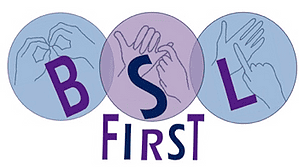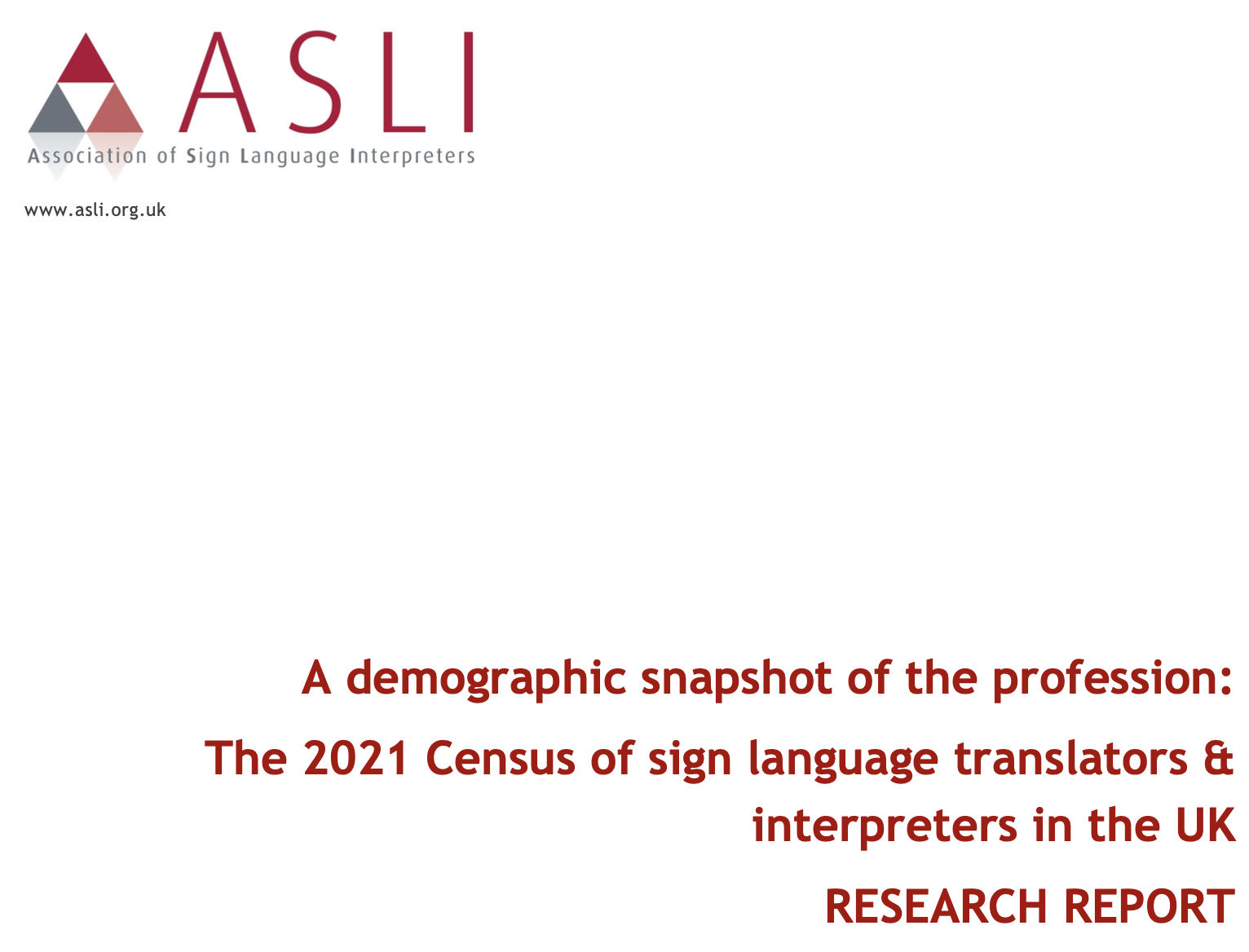The Association of Sign Language Interpreters commissioned a census of the signed language interpreting and translation (SLTI) profession. The research was carried out by academics at Heriot-Watt, Wolverhampton and West of Scotland universities, with several stakeholder organisations, including Interpreters of Colour Network (IOCN), contributing to the research as an advisory board. Akbar Sikder was the IOCN representative.
BSL First is proud to have played its part in the run up to commissioning this vital piece of research: Akbar published an article in 2019 arguing that lack of ethnic diversity in the SLTI profession risks it becoming institutionalised as a white profession – the same argument made in the SLTI census.
We are also pleased to see mention of our Interpreter Development Programme for Heritage Signers course being recognised as the only course of its kind in the UK (perhaps even the world).
“The number of SLTIs that are heritage signers/come from signing backgrounds is higher than reported in previous surveys, although this census does not just report respondents that have deaf parents but rather are People from Deaf Families (PDFs) (Napier, 2021) that may, for example, have a deaf sibling or grandparents. This census also includes deaf practitioners, whereas as historical surveys have focused on hearing interpreters only. So, this may skew the findings to be a higher number of PDF respondents to this survey (as a higher proportion of deaf SLTI respondents have deaf family members). Nevertheless, this is a positive shift given that they often will have experiences of sign language brokering (mediating) when they are young which could be a natural precursor pathway into the profession (Napier, 2017). However, it has been noted that TIEPs are more geared towards ‘new signers’ who can enrol in programmes with no sign language background (Williamson, 2016). Anecdotally, there are many reports of high levels of attrition of heritage signers from TIEPs (especially from academic programmes), which needs to be taken into consideration in future planning for recruitment and training. In the UK, there is now one new qualifying interpreter training programme targeted specifically at hearing heritage signers” (ASLI 2021).
The census also addresses the lack of suitable training for deaf interpreters and translators, citing University of Wolverhampton as the only academic programme for deaf people to qualify as RSLT. We hope that our DIDP course will help to address this gap by producing many more deaf interpreters and translators via the vocational route.
A summary of the census report and commentary is available on the Limping Chicken: https://limpingchicken.com/2021/09/07/deaf-news-danger-of-interpreting-becoming-further-institutionalised-as-a-white-profession-with-only-8-percent-coming-from-ethnic-minorities/

